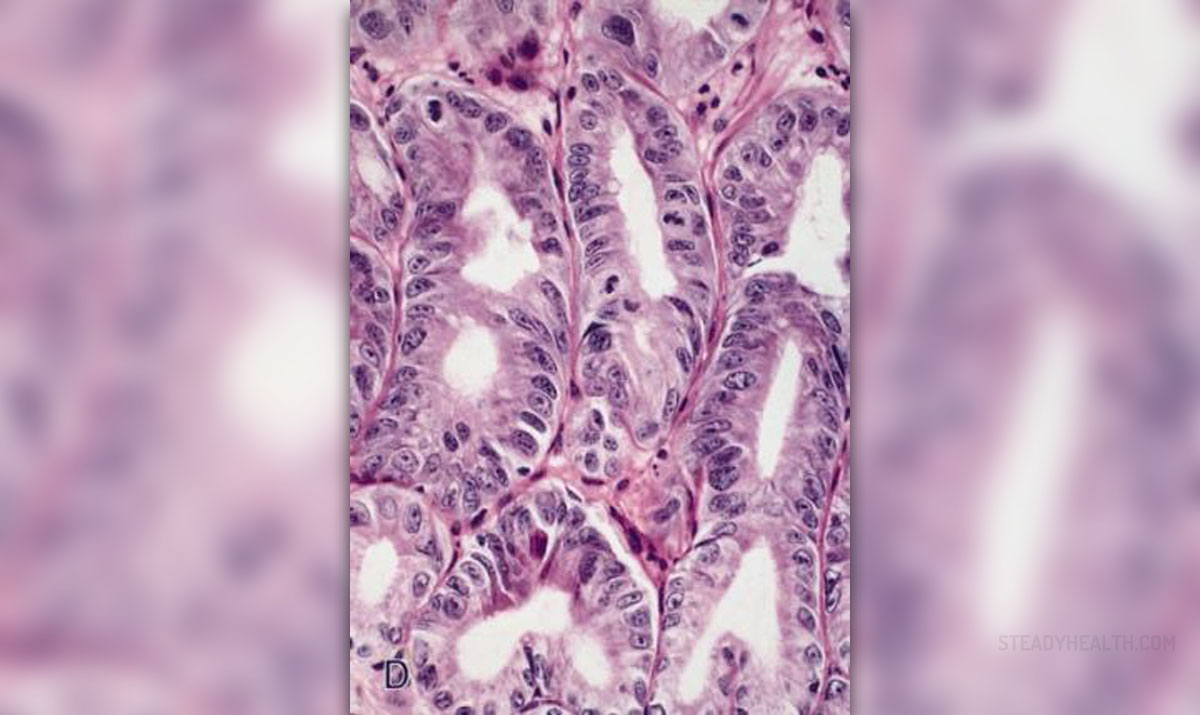
Barrett's esophagus is a medical condition that features with an abnormal change in the cells of the inferior portion of the esophagus due to persistent exposure of the esophagus to stomach acid. The cells of the inferior portion of the esophagus are normally squamous. However, prolonged exposure to stomach acid causes transformation of squamous epithelium into metaplastic columnar epithelium. This condition must be taken seriously since it carries significant risk of esophageal adenocarcinoma.
Causes of Barrett's Esophagus
The leading cause of Barrett's esophagus is a chronic exposure to stomach acid. Normally when we eat food it passes from the throat to the stomach through the esophagus. Once the food reaches the stomach a ring of esophageal muscles constricts and does not allow the food and stomach acid to regurgitate into the esophagus. However, if these muscles do not close tightly they allow re-entering of stomach acid into the esophagus and irritation of its inferior part. If this lasts long enough typical epithelium of the inferior part of the esophagus is eventually replaced with metaplastic columnar epithelium.
Symptoms of Barrett's Esophagus
The very condition may be asymptomatic. On the other hand, some patients suffering from Barrett's esophagus may experience symptoms similar to those induced by chronic GERD. The most prominent symptom is heartburn. These patients may additionally suffer from peptic ulcers and esophageal strictures. These two illnesses are accompanied by several more symptoms.
Diagnosing Barrett's Esophagus
Unfortunately, barium x-ray is not suitable test for Barrett's esophagus. This is why diagnosis of Barrett's esophagus can be set only after esophagogastroduodenoscopy. This examination is performed under sedation. The doctor examines the lining of the esophagus and stomach with a flexible endoscope. What follows is taking samples of the visibly changed tissues. After the biopsy the samples are sent to pathohistological examination which confirms or rules out transformation of the esophageal superficial cells. The patients may undergo repeated biopsied.
Treatment for Barrett's Esophagus
Unfortunately, there is no cure for Barrett's esophagus. Patients are generally recommended to change their dietary regimes and get rid of unhealthy habits (smoking, alcohol consumption etc) in order to reduce, if not eliminate, irritation caused by stomach acid. If increased production of stomach acid or its regurgitation is associated with certain medications, they need to be replaced with other drugs. Furthermore, a person may benefit from proton pump inhibitors and other acid reducing drugs.
Certain number of patients suffering from Barrett's esophagus requires surgery to strengthen lower esophageal sphincter, a muscle that does not allow re-entering of stomach acid. It is essential to monitor all the patients since the condition may eventually progress to esophageal cancer. Timely diagnosis of the potential cancer is achieved by regular endoscopy exams and biopsies.

















Your thoughts on this
Loading...